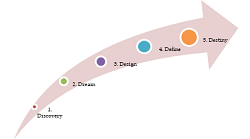Perempuan, Media Digital, dan Penguatan Ekonomi di Masa Pandemi Covid 19 Empowering Women in the Use Digital Media for Economic Strengthening in Pandemic Time Covid 19
Main Article Content
Abstract
The Covid 19 virus outbreak has affected all aspects of life without exception. The economic crisis is in sight and requires the cooperation of all parties, including women. There will be no sustainable empowerment without involving women. In line with this, the Bandung City Aisyiyah Organization appears as the vanguard to strengthen the women's economy. The approach used in this empowerment is Asset Based Community Development (ABCD). The focus of empowerment is focused on optimizing the potential for economic empowerment, especially for women in the city of Bandung. Training and assistance, starting from the importance of understanding the function of digital media for business development, creating content for networking and promotion, to the practice of using digital media optimally. The empowerment results show a significant increase in cognition in Aisyiyah women in Bandung. Empowerment like this should be made sustainable.
Downloads
Article Details
Authors who publish with this journal agree to the following terms:
- Any article on the copyright is retained by the author(s).
- Author grant the journal, right of first publication with the work simultaneously licensed under a Creative Commons Attribution License that allows others to share work with acknowledgment of the work authors and initial publications in this journal.
- Authors are able to enter into a separate, additional contractual arrangements for non-exclusive distribution of published articles of work (eg, post-institutional repository) or publish it in a book, with acknowledgment of its initial publication in this journal.
- Authors are permitted and encouraged to post their work online (e.g., in institutional repositories or on their websites) prior to and during the submission process, as can lead to productive exchanges, as well as earlier and greater citation of published work.
- The article and any associated published material is distributed under the Creative Commons Attribution-ShareAlike 4.0 International License
References
Asia-Pacific Economic Cooperation. 2013. Access to Trade and Growth of Women’s SMEs in APEC Developing Economies. Singapore: The Asia Foundation.
Chib, A., May, J., Barrantes, R. 2015. Impact of Information Society Research in the Global South. Cham: Springer Nature. https://doi.org/10.1007/978-981-287-381-1_1
Cirucci, A.M. 2018. A New Woman's Work: Digital Interactions, Gender, and Social Network Sites. International Journal of Communication. 12:2948-2970.
Frinces, Z.H. 2010. Pentingnya Profesi Wirausaha di Indonesia. Jurnal Ekonomi dan Pendidikan. 7(1):34-57. http://dx.doi.org/10.21831/jep.v7i1.576
Hanafi, S.M., Sobirin, A. 2002. Relevansi Ajaran Agama Dalam Aktivitas Ekonomi. Iqtishad Journal of Islamic Economics. 3(1):16-34. https://doi.org/10.20885/iqtisad.vol3.iss1.art2
Ibrahim, Z. 2005. Psikologi Wanita. Bandung: Pustaka Hidayah.
Indayani, S., Hartono, B. 2020. Analisis Pengangguran dan Pertumbuhan Ekonomi sebagai Akibat Pandemi Covid-19. Perspektif : Jurnal Ekonomi dan Manajemen Akademi Bina Sarana Informatika. 18(2):201–208. https://doi.org/10.31294/jp.v17i2
Indiworo, H.E. 2016. Peran Perempuan Dalam Meningkatkan Kinerja UMKM. 1(1):40-58. https://doi.org/10.26877/ep.v1i1.1806
Kadeswaran, S., Brindha, D., Jayaseelan, R. 2020. Social Media as a Gateway for Accelerating Women Empowerment. Parishodh Journal. 9(3):4876–4885.
Kotler, P., Kartajaya, H., Setiawan, I. 2017. Marketing 4.0: Moving from Traditional to Digital. New Jersey, US: John Wiley & Sons Inc.
Kretzmann, J.P., McKnight, J.L. 1993. Building communities from the inside out: A path toward finding and mobilizing a community’s assets. Chicago, US: ACTA Publications.
Melissa, E., Hamidati, A., Hamidati, M.S. 2013. Social Media Empowerment: How Social Media Helps to Boost Women Entrepreneurship in Indonesian Urban Areas. IAFOR Journal of Media, Communication and Film. 1(1):77-90. https://doi.org/10.22492/ijmcf.1.1.06
Stein, P., Ardic, O.P., Hommes, M. 2013. Closing the Credit Gap for Formal and Informal Micro, Small, and Medium Enterprises. Washington, US: International Finance Corporation.
Suwana, F., Lily. 2017. Empowering Indonesian Women through Building Digital Media Literacy. Kasetsart Journal of Social Science.38(3):1–6. https://doi.org/10.1016/j.kjss.2016.10.004
Tambunan, T. 2012. Usaha Mikro Kecil dan Menengah di Indonesia: Isu-isu Penting. Jakarta: LP3ES.
Vivakaran, M.V., Maraimalai, N. 2017. Feminist pedagogy and social media: a study on their integration and effectiveness in training budding women entrepreneurs. Gender and Education. 29(7):869–889. https://doi.org/10.1080/09540253.2016.1225008
